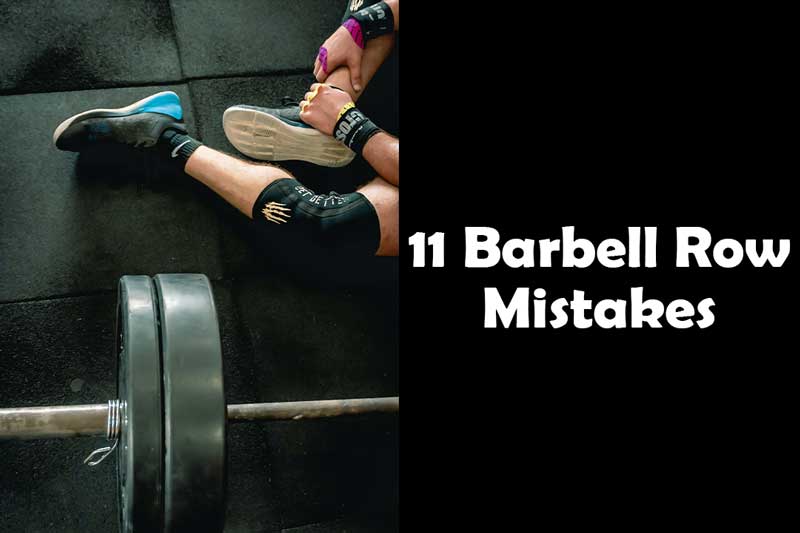Bench press with dumbbell or barbell, it is an excellent exercise to add in any workout routine to target the chest. Both are equally important and have their own benefits. Bench presses have both pros and cons.
However, within the realm of bench pressing, many individuals find the dumbbell bench press to be more challenging than its barbell counterpart.
In this article, we will explore the reasons why the dumbbell bench press is considered harder and the benefits it offers for your overall workout routine.
What is a Dumbbell Bench Press?
The dumbbell bench press is a popular and effective strength training exercise that targets the muscles of the chest, shoulders, and triceps.
It is a variation of the traditional bench press, where you use dumbbells instead of a barbell for resistance. This exercise is commonly performed in gyms and fitness centers and is favored by athletes, bodybuilders, and fitness enthusiasts alike.
It is one of the most common exercises you cannot escape from if you are a gym goer or an active weightlifter.
Reasons that make Dumbbell Bench Press Harder
1. Dumbbell Bench Press requires Stabilization of both Arms
One of the main reasons why dumbbell bench press is harder than other forms of bench press is because it needs both the arms with balanced strength and coordination. Here, both the arms are independent of each other and if one being weaker will create difficulty in performing it easily.
Unlike the barbell bench press, where both arms move in unison, the dumbbell bench press necessitates individual control of each weight.
This means you have to stabilize and coordinate each arm independently, making it a more demanding task for your central nervous system.
2. Engaging Supporting Muscles
In a barbell bench press, the bar provides more stability, placing more emphasis on the chest muscles.
However, when using dumbbells, your body engages additional supporting muscles, such as the shoulders, triceps, and even the core, to maintain balance and control throughout the exercise.
This factor leads to more difficult lifts for someone just starting with dumbbell bench press. And when these extra muscles are in action, the lifts become easier overtime.
3. Dumbbell Bench Press is Tough to Start and Finish
If you are using a pair of heavy dumbbells for bench press, it is often difficult to start the motion and get into the position of bench press.
If you have no prior experience it is difficult to push or lift the dumbbell at the time when you lie down on the bench.
For this either have someone to assist you or you can reduce the weight if you are not confident. But with practice you can learn the proper execution form. This is very important to consider, otherwise it is very common to injure yourself.
4. Increased Range of Motion
Dumbbell bench presses offer a greater range of motion compared to barbell presses. Lowering the weights beyond the chest level allows for a deeper stretch in the pectoral muscles, leading to enhanced muscle engagement and potentially greater muscle growth.
This can lead to difficulty in doing more reps as your range of motion is increasing.
5. Addressing Strength Imbalances
Using dumbbells individually enables you to identify and address any strength imbalances between your left and right sides.
Most people do have some sort of imbalances on one hand or other, this can lead to difficulty in doing bench presses with dumbbells. But it also helps to strengthen the weak side and correct it.
This is especially crucial for athletes and fitness enthusiasts looking to correct any disparities and reduce the risk of injuries.
6. Dumbbell Bench Press Needs More Core Activation
As mentioned earlier, dumbbell bench presses require increased stabilization, and this activates your core muscles. A weak core can lead to less repetitions on higher dumbbell weights.
A strong core is vital for overall body strength and stability, making the dumbbell bench press an excellent exercise for building functional strength.
Some Benefits of Dumbbell Bench Press
1. Overcoming Plateaus
If you have been stuck in a plateau with your barbell bench press, incorporating dumbbell bench presses into your routine can provide a refreshing challenge and potentially break the plateau. The change in movement pattern and muscle engagement can spur new muscle growth and strength gains.
2. Preventing Muscle Memory
Muscle memory can occur when you consistently perform the same exercises with the same equipment. Introducing variations like dumbbell bench presses can disrupt muscle memory and stimulate new muscle fibers, promoting further progress.
3. Enhanced Chest Squeezes
During dumbbell bench presses, you can achieve a more profound contraction of the chest muscles by squeezing the dumbbells together at the top of the movement. This allows for a more intense focus on the pectoral muscles and contributes to better overall muscle development.
4. Challenging Different Muscle Fibers
Due to the versatility of dumbbells, you can execute various grip positions and angles. These variations challenge different muscle fibers within the chest, shoulders, and triceps, leading to a more well-rounded upper body development.
5. Improved Mind-Muscle Connection
The independent movement of each arm in a dumbbell bench press requires increased focus and concentration. This enhanced mind-muscle connection can lead to better muscle recruitment and improved workout efficiency.
6. Functional Strength
The dumbbell bench press more closely mimics everyday functional movements compared to the barbell bench press. This makes it an excellent choice for those seeking to enhance their overall functional strength and carry over their fitness gains into daily activities.
7. Variety in Training
Adding variety to your workout routine is essential for preventing boredom and keeping yourself motivated. Incorporating dumbbell bench presses into your chest workout routine can add excitement and freshness to your training regimen.
8. Injury Prevention
By engaging supporting muscles and promoting balance, the dumbbell bench press can help reduce the risk of injury, especially in the shoulders and chest area.
9. Customizable Weight Selection
Dumbbells come in various sizes, making it easier to find the appropriate weight that suits your fitness level and goals. This customization allows for gradual progression and prevents overexertion.
How to Make Dumbbell Bench Press Easier
As we discussed, dumbbell bench press can be a challenging exercise, especially for beginners or individuals who are still building their upper body strength.
However, there are several strategies and modifications you can implement to make the dumbbell bench press easier and more manageable while still reaping its benefits. Here are some.
1. Start with Lighter Weights
If you’re new to the dumbbell bench press or working on improving your strength, it’s essential to begin with lighter weights.
Starting with weights that you can comfortably lift for the desired number of repetitions allows your muscles to adapt to the movement without being overwhelmed.
Don’t ego lift. Increase your weights slowly and overtime you will reach the goal you want to.
2. Use a Spotter
It is not a necessary requirement if you are lifting according to your strength level. But if you are not sure of the dumbbell weights you are going to lift, it is better to get a spotter to be on the safer side.
Having a spotter can provide you with the confidence and reassurance needed to push yourself during the exercise.
A spotter can assist you in lifting the dumbbells when you need help and ensure your safety throughout the set.
3. Opt for an Incline Bench
Performing the dumbbell bench press on an incline bench can make the exercise easier compared to a flat bench.
This can be controversial, as incline bench presses are tougher than flat bench presses. On an incline bench you cannot go heavy as compared to a flat bench. But incline bench press is easier to perform and that’s the reason you can start with incline bench press with dumbbells rather than flat bench press with dumbbells.
The incline angle reduces the range of motion and places more emphasis on the upper chest, which is typically stronger for many individuals.
4. Reduce Range of Motion
If you find it challenging to lower the dumbbells fully to your chest, consider reducing the range of motion slightly.
Instead of lowering them all the way down, stop when your elbows reach a 90-degree angle. This modification can ease the pressure on your chest muscles.
5. Increase Repetitions, Decrease Weight
Performing more repetitions with lighter weights can be an effective way to make the exercise less demanding.
Instead of aiming for a lower number of heavy reps, try doing more repetitions with a weight that allows you to maintain proper form throughout the set.
6. Focus on Breathing
An important tip that beginners and even advanced members forget to follow. Proper breathing technique can make a significant difference in the difficulty of the exercise.
Remember to inhale as you lower the dumbbells and exhale as you press them back up. Controlled breathing helps stabilize your body and enhances your performance.
7. Master the Form
Ensuring you have the correct form is essential for both safety and efficacy. Focus on keeping your back flat against the bench, engaging your core, and maintaining a controlled and steady movement throughout the exercise.
8. Warm-up Adequately
Warming up before the dumbbell bench press is crucial to prepare your muscles and joints for the movement. A proper warm-up routine can reduce the risk of injury and help you perform the exercise more comfortably.
9. Rest Between Sets
Giving yourself enough rest between sets allows your muscles to recover and regain some strength. Avoid rushing through your workout and prioritize quality over quantity.
10. Stretch and Mobilize
Incorporate stretching and mobility exercises into your routine to improve your overall flexibility and make the dumbbell bench press more manageable. Flexible muscles are less prone to strain and injury.
11. Listen to Your Body
Pay attention to how your body responds to the exercise and adjust accordingly. If you feel excessive strain or discomfort, it’s essential to scale back and modify the exercise as needed.
Conclusion
In conclusion, the dumbbell bench press is undoubtedly a challenging yet rewarding exercise. Its emphasis on stabilization, engagement of supporting muscles, increased range of motion, and numerous other benefits make it a valuable addition to any strength training routine.
By starting with lighter weights, using proper form, and implementing the strategies mentioned above, you can make the exercise easier while still benefiting from its effects.
Remember to progress gradually and listen to your body to ensure a safe and successful workout routine.
Frequently Asked Questions
1) Are dumbbell bench presses suitable for beginners?
Yes, beginners can start with lighter dumbbells and gradually increase the weight as they become more comfortable with the exercise.
2) Can the dumbbell bench press help with shoulder stability?
Absolutely! The dumbbell bench press engages the shoulder stabilizer muscles, contributing to better shoulder stability and reducing the risk of injuries. Incline dumbbell bench press will help even more.
3) How often should I perform dumbbell bench presses?
It is better that you should include dumbbell bench presses in your chest workout routine 1-2 times per week, depending on your overall training program.
4) Can dumbbell bench presses replace barbell bench presses entirely?
No, it cannot and vise versa. While both exercises offer unique benefits, it’s beneficial to include both barbell and dumbbell bench presses in your routine for optimal muscle development and strength gains.
5) Is it normal to lift heavier weights in the barbell bench press compared to the dumbbell bench press?
Yes, it’s common to lift more weight in the barbell bench press due to the additional stability provided by the bar. However, the dumbbell bench press offers other benefits that the barbell version may not provide.
Till then, Say Yes, to Strength!





